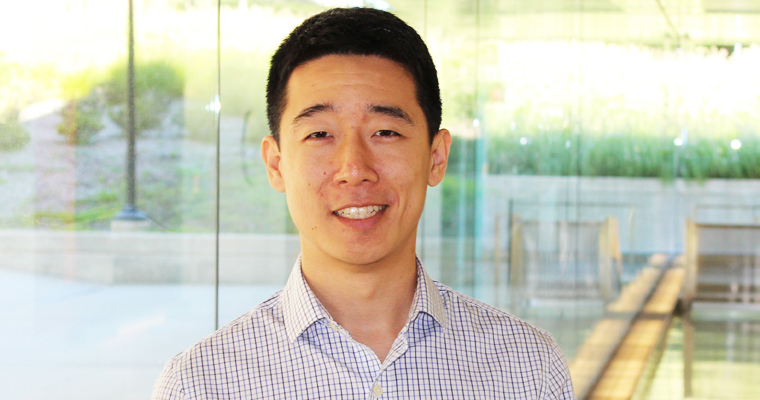Using energy storage in an environmentally friendly way – Yashen Lin earns a Dow Sustainability Fellowship
The results of Lin’s research can help us better understand how introducing DES affects the environmental impact of a power system.

 Enlarge
Enlarge
Yashen Lin, an ECE Research Fellow, has earned a Dow Sustainability Fellowship to pursue research in smart grid applications and their environmental impacts.
Working collaboratively with Prof. Johanna Mathieu and Prof. Jeremiah Johnson (U-M School of Natural Resources and Environment), Dr. Lin studies how introducing distributed energy storage (DES) into the power grid under the current dispatch algorithm may have counter-intuitive impacts on the environmental outcome of the system, and how to mitigate these environmental burdens. As more and more renewable energy sources are introduced to the power grid, measures are needed to make sure the system can remain balanced. One option to help counter the unreliability of solar and wind power is energy storage.
Many technologies can be used as energy storage, such as large household batteries. Because these energy storage systems typically don’t produce any emissions, like CO2, users often assume that they’re a clean option. But the use of these systems can alter how the entire grid behaves and lead to unforeseen consequences. Dr. Lin will use optimal power flow analysis to determine what the extent of these consequences may be. Additionally, he will assess battery life cycles and ways to integrate that factor into how the power grid is scheduled.
The results of this research can help us better understand how introducing DES affects the environmental impact of a power system and how the grid configurations can affect that impact. Ultimately, the goal is to integrate more systems safely to allow for increased use of renewable power.
“This work is exciting because it’s such a new area,” says Dr. Lin. “We are using more and more renewables – with the technology improving, the cost to implement them is reduced. Maybe ten years ago it was too expensive to even consider using solar panels in large scale.”
Dr. Lin earned his BS in Automation from the University of Science and Technology Beijing, and his MS and PhD in Mechanical Engineering from the University of Florida. During his PhD he studied how to use systems in commercial buildings to provide power grid ancillary service. After his time at U-M he plans to continue his research in the area of renewable energy and grid integration.
About the Fellowship
The University-wide Dow program supports full-time graduate students and postdoctoral scholars who find interdisciplinary, actionable, and meaningful sustainability solutions. Fellows are awarded $50,000 for their studies, participate in monthly workshops and cohort-building activities to enhance their sustainability knowledge, and complete an interdisciplinary team project.
 MENU
MENU 
